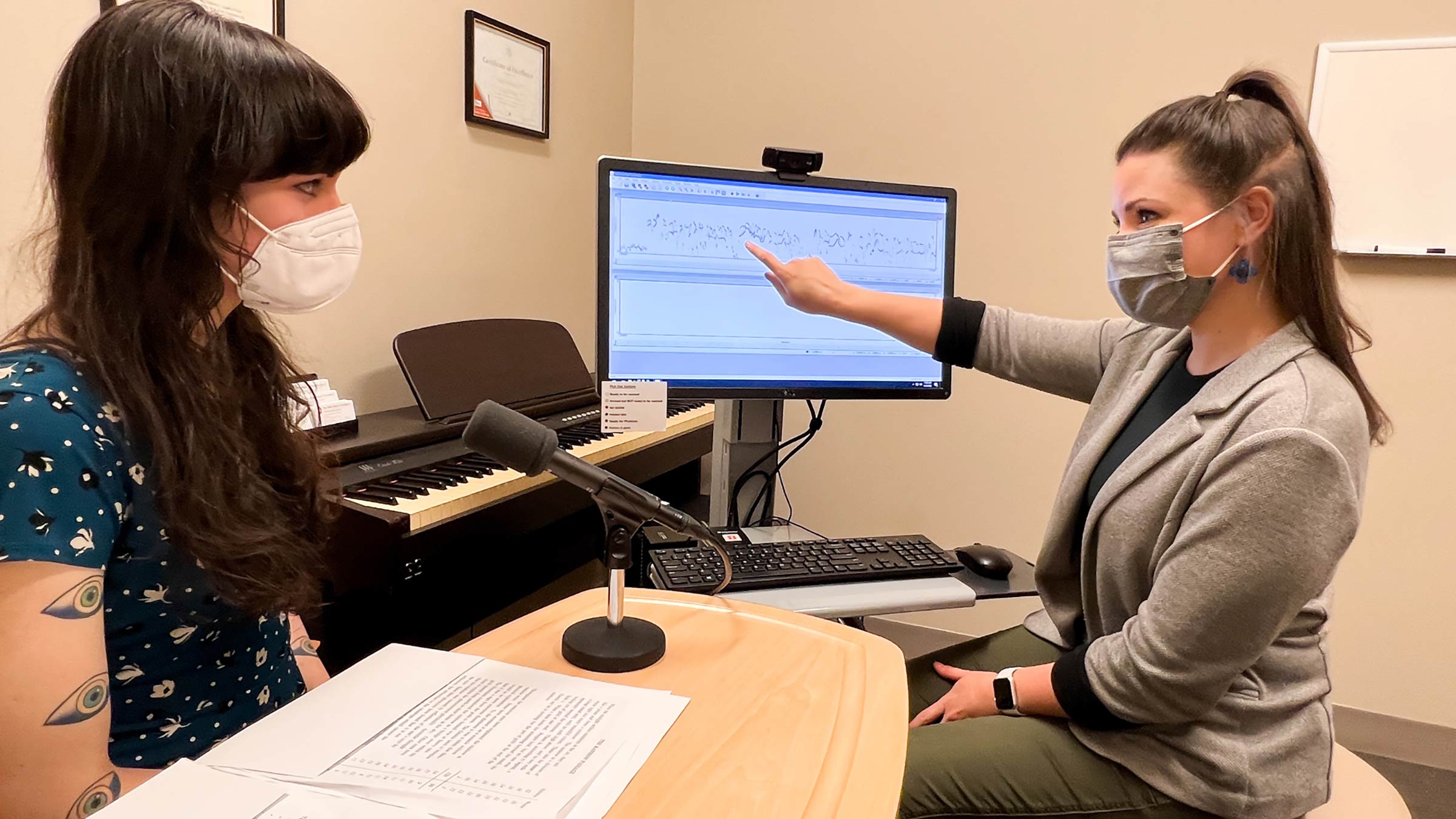
Gender dysphoria — the stress one experiences when the gender they identify with differs from their sex assigned at birth — deeply affects the lives of many transgender individuals.
Coupled with negative social interactions such as verbal and physical abuse that many in the transgender community face, people in this marginalized population often struggle with mental health issues such as anxiety and depression and are at greater risk of suicide.
Supporting patients with high-quality, gender-affirming care through their transition journey can be critical to improving their overall quality of life. This not only includes physical attributes, but also how they sound.
“Anytime someone gets misgendered, that's a huge blow to their confidence, to their emotional health, self-esteem, and it really plays in pretty tightly with identity,” says Laura Matrka, MD, an otolaryngologist at The Ohio State University Wexner Medical Center and clinical associate professor of otolaryngology at The Ohio State University College of Medicine. “We’ve found that when someone is able to transition, a lot of the underlying mental health issues that people assumed were ingrained get better.”
For some, voice therapy and surgery are an important and affirming part of a person’s transition journey
After Ari Toumpas made the decision to transition, there was still one aspect of how she presented herself that compromised her sense of self and even safety.
"I don't like the way my voice sounds, and I don't want to be heard,” Toumpas says. “I don't want the possibility of running into any trouble or transphobia out in the real world."
Toumpas tried to change her voice on her own using online videos, but she quickly recognized she needed help to transform her voice in a healthy, sustainable way.
“I realized this wasn't clicking for me on my own, and I needed a guiding hand,” Toumpas says.
Toumpas turned to Ohio State, where otolaryngologists and voice therapists partner to offer voice care as part of a comprehensive gender-affirming care program to help those who are transitioning find their voice.
Patients seeking a voice that aligns with their gender identity start with an overall voice assessment by an otolaryngologist. During the laryngoscopy procedure, the surgeon examines the vocal cords and evaluates how they vibrate. Following the assessment, patients participate in 10-12 weeks of intense therapy with a voice therapist who specializes in gender-affirming voice therapy.
“There is a lot more to voice presentation than pitch, and a lot of the things people do with their voice are learned over their lifetime,” says Anna Lichtenstein, MA, CCC-SLP, a voice therapist at the Ohio State Wexner Medical Center specializing in gender-affirming voice modification therapy. “In voice therapy, I work with transgender patients to achieve these nuanced characteristics by working on things like resonance, inflection, airflow, breathing and intonation.”
A small subset of patients may need further treatment to modify the voice. In those cases, a surgeon can perform a voice or pitch elevation surgery, such as Wendler's glottoplasty. The surgery shortens the vocal cords, raising the pitch and eliminating the lowest parts of the patient’s vocal range.
“In some cases, surgery helps with the strain and the fatigue it takes to maintain a pitch and, maybe most importantly, it eliminates accidental bass notes,” Dr. Matrka says.
Surgery to raise pitch is more common in transgender women because, while hormone therapy can help lower the voice for transgender men, this type of therapy does not change the voices of transgender women.
Toumpas was able to achieve her ideal voice through therapy alone and was amazed by the transformation.
“I can't really comfortably do my old voice anymore, which is exciting, and an odd feeling that I almost can't remember waking up every day and sounding like that,” Toumpas says.
Voice therapy and surgery are part of a broad range of surgical, non-surgical and mental health care services at the Ohio State Wexner Medical Center that are available to transgender, non-binary and gender non-conforming patients.







